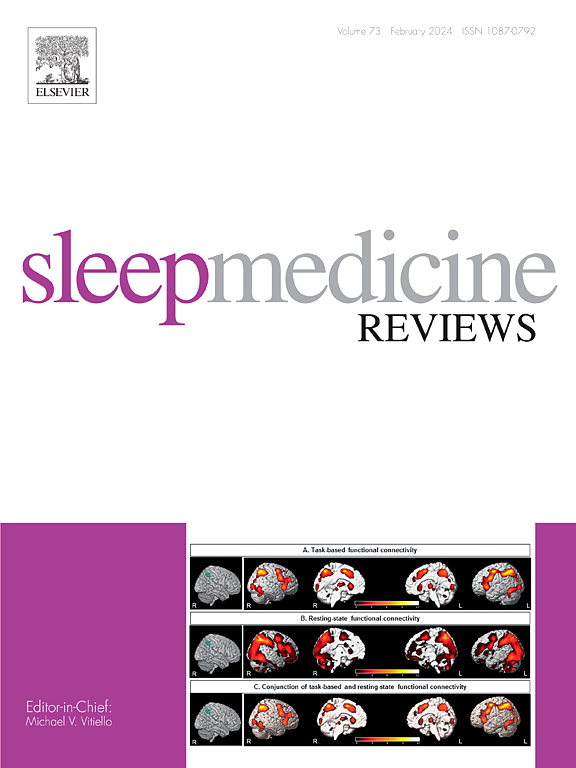卒中幸存者睡眠质量差的患病率:荟萃分析和系统回顾
IF 9.7
1区 医学
Q1 CLINICAL NEUROLOGY
引用次数: 0
摘要
睡眠质量差在中风幸存者中很常见,但患病率在不同的研究中有所不同。这项荟萃分析调查了中风幸存者中睡眠质量差的全球患病率及其调节因素。方法系统检索PubMed、Web of Science、Embase、PsycINFO、CNKI、万方等相关文献。使用随机效应模型计算睡眠质量差的总患病率和95%置信区间(ci)的睡眠质量成分得分。结果共纳入68项研究,14845名符合研究入组标准的受试者。所有纳入的研究都使用匹兹堡睡眠质量指数(PSQI)来评估睡眠质量。卒中幸存者睡眠质量差的全球患病率为50.26% (95%CI: 46.69% - 53.82%)。中风发生在左半球与睡眠质量差的风险较低有关,而中风类型(即脑梗死)和中低收入国家与中风幸存者睡眠质量差的风险较高有关。在这项荟萃分析中,睡眠质量差在中风幸存者中很常见,并且受中风地点、类型和国家收入的影响。为了解决卒中幸存者睡眠质量差的不利影响,应及时提供定期筛查和适当干预。本文章由计算机程序翻译,如有差异,请以英文原文为准。
Prevalence of poor sleep quality among stroke survivors: A meta-analysis and systematic review
Background
Poor sleep quality is common among stroke survivors, but the prevalence rates vary between studies. This meta-analysis examined the global prevalence of poor sleep quality and its moderating factors among stroke survivors.
Method
Relevant publications were systematically searched in PubMed, Web of Science, Embase, PsycINFO, CNKI and WanFang. The pooled prevalence of poor sleep quality and the sleep quality component scores with 95 % confidence intervals (CIs) were calculated using a random-effects model.
Result
Totally, 68 studies comprising 14,845 participants who fulfilled study entry criteria were included for analyses. All included studies used the Pittsburgh sleep quality index (PSQI) to assess sleep quality. The global prevalence of poor sleep quality in stroke survivors was 50.26 % (95%CI: 46.69%–53.82 %). Stroke location in left hemisphere was associated with a lower risk of poor sleep quality, while stroke type (i.e., cerebral infarction) and lower-middle-income countries were associated with higher risk of poor sleep quality in stroke survivors.
Conclusion
In this meta-analysis, poor sleep quality was common among stroke survivors and was moderated by stroke location, type, and countries income. To address the adverse impacts of poor sleep quality in stroke survivors, regular screening and appropriate intervention should be provided in a timely fashion.
求助全文
通过发布文献求助,成功后即可免费获取论文全文。
去求助
来源期刊

Sleep Medicine Reviews
医学-临床神经学
CiteScore
20.10
自引率
3.80%
发文量
107
期刊介绍:
Sleep Medicine Reviews offers global coverage of sleep disorders, exploring their origins, diagnosis, treatment, and implications for related conditions at both individual and public health levels.
Articles comprehensively review clinical information from peer-reviewed journals across various disciplines in sleep medicine, encompassing pulmonology, psychiatry, psychology, physiology, otolaryngology, pediatrics, geriatrics, cardiology, dentistry, nursing, neurology, and general medicine.
The journal features narrative reviews, systematic reviews, and editorials addressing areas of controversy, debate, and future research within the field.
 求助内容:
求助内容: 应助结果提醒方式:
应助结果提醒方式:


